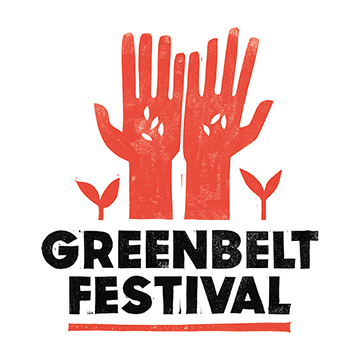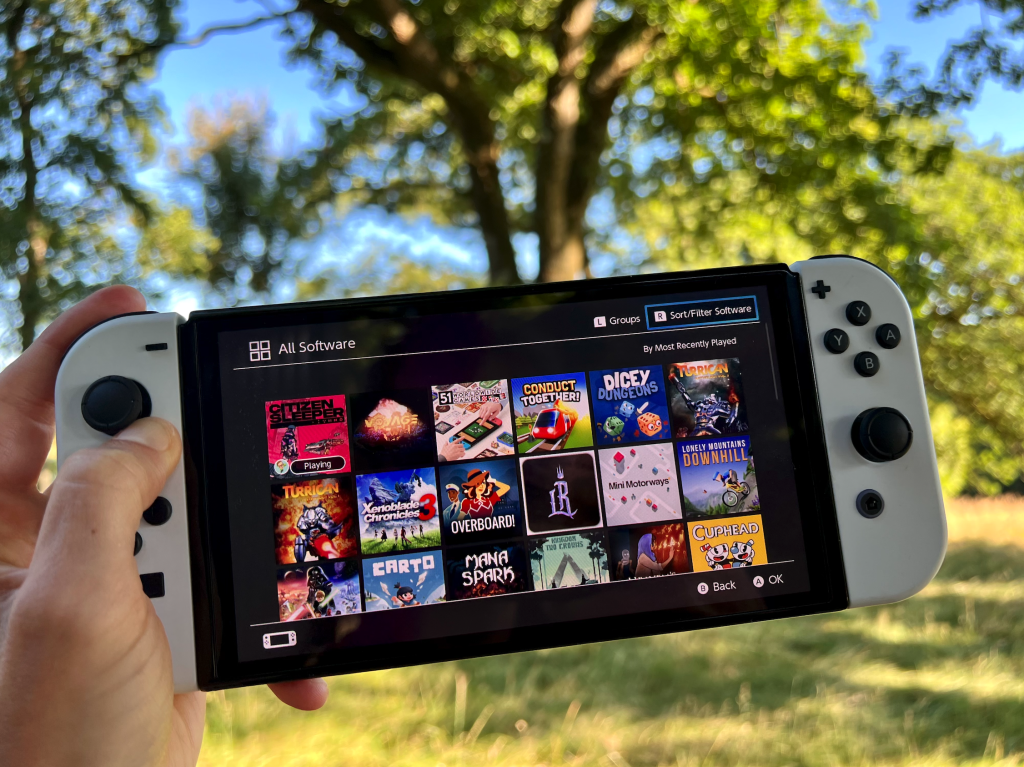
Andy Robertson is a theologically trained freelance journalist for BBC and Guardian specialising in video games and families. He created the Family Gaming Database and Taming Gaming book for parents. He has run video-game-enriched Cathedral services and spiritual gaming events at Greenbelt Festival.
My work as a video game consultant aims to help individuals and communities capitalise on what this new interactive media may offer them. This has taken me to churches, festivals, parks, conventions, colleges, museums and cathedrals. A big part of the challenge (and opportunity) is that the adults I work with are often unaware of what video games may offer them. It’s completely understandable, they are busy, overloaded and reluctant to spend their precious time on what they perceive as entertainment designed for children.

Discovering the work of the William Temple Foundation was instantly fascinating to me. The organisation has a similar challenge to the one I face, albeit at a different stage of its life cycle. It focuses on capitalising on the lost benefits that church and faith have to play as a positive role in shaping life and giving voice to those on the margins. The work of the Foundation is rooted in the legacy of Archbishop William Temple (1881-1944) who coined the term welfare state and pioneered a public theological approach to citizen leadership in response to the crises of the day. After his death, Temple College (which later became the Foundation) was established to develop leadership practice with those who found themselves on the margins of church and society. 80 years after Temple’s death, the Foundation is returning to its roots through its Radical Hope campaign, to develop new forms of leadership from the margins of society, once again.
What video games have to offer isn’t lost, of course, because we haven’t yet fully found it. But the hope is similar: that video games have a positive role to play in shaping life and giving voice to parts of our society that are not often heard. In my work with community groups, this starts with children but then moves out to other marginalised groups.
Although in the process of being recovered, the idea that Christian thought and practice can sustain the economic, social and political well-being of society is a mainstream idea. It’s less common to consider how video games may offer some kind of parallel benefit. It is so less common, in fact, that it sounds like a category mistake. As if I am suggesting that chicken nuggets may offer a new way to make sense of the world. My experience has been, contrary to how it might sound, that the longer and deeper I delve into video games the more they offer new ways to imagine how life may become hopeful again. They offer public goods and social and personal benefits, in a way we usually associate with arts like poetry, film, theatre and music. The best way to explain this is to illustrate it with concrete examples of how games create space that enables players to “shape the social order for the common good”, to borrow from the William Temple Foundation vision statement.
Hope Through Radical Solidarity
Video games enable us to experience other people’s lives from the inside. Unlike books or films that provide an external window into a vertical slice of life. Video games invite you not only to walk around someone else’s world but take responsibility for how they move, develop and resolve. They are a new way to hopefully engage with previously unimagined ways of living and perspectives on the world. Travelling the spaces, finding solidarity with the people and lives we meet, video games extend an invitation to rediscover the hope of life unfolding in ways we hadn’t previously considered. Games like Venba weave a multi-generational story through the meals and conversations you create. Or there is Bury Me, My Love which invites you to help your partner’s refugee journey to Europe with only text messages. Season: A Letter to the Future, asks you to create a journal to save the culture and life of a valley on the edge of extinction.
Hope Through Proximity and Presence
Video games invite us to get close to people. We find intimate interactions and secret conversations that move the journey forward. There’s no rush as things move at our speed, and we can dwell on unfolding narratives and how we might affect them with our presence. Signs of the Sojourner invites us to learn the emotions and language of people we don’t know, so much so that when we return home we feel like aliens ourselves. Road 96 casts you as a teenager trying to escape an oppressive, authoritarian regime with the choices you make sending ripples (of hope) that affect the whole country. That Dragon, Cancer asks if you will spend time in the conversations, phone calls and whispered hopes of a family that has a young son with terminal brain cancer.
Hope Through Pro-Social Markets
Video games are also a chance to push back at the way things are. Not in a theoretical or ontological way, but through taking action that results in previously unimagined ways of organising commerce and trading. While many games are designed to generate huge profits for its makers, there are thousands of others that present worlds where capitalism is called into question and other ways of sustaining life can be experienced. Apico offers you the chance to keep bees at the sort of scale that would put Amazon to shame. Dredge is a chance to grow a fishing business that not only serves the locals’ culinary needs but also helps them recover from a strange threat that haunts them at night. Papers Please puts you to work as a border-crossing immigration officer where your decisions about who is or isn’t legitimate have consequences for them and for you.
Conclusion
Like books, films, music, poetry and other media, there really is a video game about pretty much anything. The examples here of course only scratches the surface of what video games have to offer and what they may learn from the approach of the William Temple Foundation. The invitation to write about them here, and the William Temple Foundation gaming sessions I’m running at Greenbelt are a tangible way to move this conversation forward. Granting video games access to these kinds of grown-up cultural contexts is rare. But most exciting for me is how William Temple Foundation offers a model for sharing this radical hope with more people, so together we might better live life in all its fullness.
Editorial:
The William Temple Foundation are delighted to share our work at Greenbelt in 2024. Our programme builds on contributions from numerous members of our fellowship. Rev Dr John Reader, who sadly passed away in 2023, pioneered work on the post-digital and curated the Ethical Futures Network who are supporting our new dialogue around Artificial Intelligence (AI) and Robot Ethics at Greenbelt. Second, Professor Simon Lee established the Radical Hope agenda for the Foundation in 2023. This has led to the Radical Hope in an Election year campaign in 2024. Third, there is the work of Dr Matthew Barber-Rowell through his work called Curating Spaces of Hope which is set out in his PhD. Spaces of Hope pioneers new understandings of faith-based organisation, social movement and processes of creating and curating shared spaces of dialogue and partnership. Most recently Spaces of Hope has been applied within post-pandemic urban contexts in north west England (2022-2024). In April 2024 Spaces of Hope was also set in dialogue with the Foundation’s Radical Hope agenda. This work is set out in Barber-Rowell’s forthcoming book with SCM Press, Curating Spaces of Hope: transformation leadership for uncertain times. Ideas and contributions from each of these areas of work have now been curated by Professor Chris Baker through his new blog about Radical Solidarity and our 2024 Greenbelt presence. All of this has set the stage for this great blog by Andy Robertson, which we hope you enjoy.
More blogs on religion and public life
- “Barnabas Thrive” led by Revd Dr Paul Monk, is awarded Kings Award for Voluntary Service
by Matthew Barber-Rowell - How could a Temple Tract have had even more traction?
by Simon Lee - Remembrance Day: Just Decision Making II
by Matthew Barber-Rowell - Trustees Week 4th Nov – 8th Nov 2024
by Matthew Barber-Rowell - Some ancient wisdom for modern day elections
by Ian Mayer
Discuss this